Implementation, Consulting, Auditing & Certification at one place . We focus on taking your business to new heights.
ISO 50001 Certification in New Zealand provides organizations with a globally recognized framework for managing energy efficiently and reducing costs. It demonstrates your commitment to sustainability, energy conservation, and environmental responsibility, which can enhance your reputation and attract environmentally conscious customers and stakeholders.
ISO 50001 is an international standard for energy management systems. It provides a framework for organizations to establish, implement, maintain, and improve their energy performance. The Certification demonstrates that an organization has implemented efficient energy management practices and is committed to reducing its energy consumption and environmental impact.
To obtain ISO 50001 Certification in New Zealand, organizations need to follow a series of steps:
To obtain ISO 50001 Certification in New Zealand, organizations need to follow a systematic Certification process. This typically involves the following steps:
Implementing ISO 50001 in New Zealand offers numerous benefits for organizations committed to energy management and sustainability in New Zealand. Some of the key advantages include:
ISO 50001 requires organizations to develop and maintain certain documentation to ensure effective energy management. Some of the key documents included for Energy management system documentation in New Zealand:
ISO 50001 Energy Policy Certification in New Zealand:
The energy policy is a fundamental document that sets out an organization’s commitment to energy management and provides a framework for establishing energy objectives and targets. It should align with the organization’s overall mission, vision, and values and be communicated to all relevant stakeholders. The energy policy should be periodically reviewed to ensure its ongoing suitability and effectiveness.
ISO 50001 Energy Review in New Zealand:
Conducting an energy review is an essential step in understanding the organization’s energy consumption patterns and identifying areas for improvement. The energy review should consider various factors such as energy sources, energy flows, and energy-consuming processes. It should also take into account relevant legal and other requirements related to energy performance.
ISO 50001 Energy Baseline:
Establishing an energy baseline enables organizations to measure their current energy performance accurately. The energy baseline serves as a reference point against which future energy savings and improvements can be evaluated. It should consider historical energy data, energy consumption patterns, and any significant changes in operations or processes.
ISO 50001 Energy Performance Indicators:
Energy performance indicators (EnPIs) provide measurable indicators of an organization’s energy performance. They help track progress towards energy objectives and targets and provide valuable insights for decision-making. EnPIs should be specific, measurable, achievable, relevant, and time-bound (SMART).
ISO 50001 Energy Objectives in New Zealand:
Setting energy objectives is a critical aspect of ISO 50001 compliance in New Zealand. Energy objectives should be aligned with the organization’s energy policy, legal requirements, and stakeholder expectations. They should be measurable and communicated throughout the organization. Regular review and monitoring of energy objectives ensure ongoing improvement.
ISO 50001 Energy Management system Plans in New Zealand:
Energy action plans outline the specific actions and initiatives required to achieve energy objectives. They should identify responsible individuals, timelines, and resource requirements. Energy action plans should be regularly reviewed, updated, and monitored for progress.
ISO 50001 Monitoring and Measurement:
Effective monitoring and measurement of energy performance are essential to ensure the success of ISO 50001 implementation in New Zealand. Organizations should establish procedures to track energy consumption, EnPIs, and other relevant indicators. Regular monitoring enables organizations to identify deviations from planned performance and take corrective actions promptly.
ISO 50001 Management Review in New Zealand:
Management review is a crucial part of ISO 50001 in New Zealand, providing an opportunity for top management to evaluate the effectiveness and suitability of the energy management system. It involves reviewing energy performance, progress towards objectives, and the status of energy action plans. Management review meetings should be documented, and actions arising from the reviews should be tracked.
ISO 50001 Internal Audits in New Zealand:
Internal audits help organizations assess the conformity and effectiveness of their energy management system in New Zealand. Trained internal auditors should conduct audits at planned intervals to identify nonconformities and areas for improvement. The audit findings should be documented and communicated to relevant stakeholders.
ISO 50001 Nonconformities and Corrective Actions:
When nonconformities are identified through internal or external audits, organizations must take corrective actions to address them promptly. Corrective actions should eliminate the root causes of nonconformities and prevent their recurrence. The effectiveness of corrective actions should be monitored to ensure sustained improvement.
ISO 50001 Continual Improvement:
ISO 50001 Certification in New Zealand emphasizes the importance of continual improvement in energy performance. Organizations should establish processes to identify energy-saving opportunities, implement energy-efficient technologies and practices, and continually monitor and evaluate their performance. Continual improvement efforts should be supported by management commitment, employee engagement, and the allocation of necessary resources.
The primary purpose of the ISO 50001 Certification audit in New Zealand is to verify an organization’s compliance with ISO 50001 Certification requirements and assess the effectiveness of its energy management system. The audit aims to:
The ISO 50001 Certification audit process typically consists of the following steps:
Step 1: Application and Documentation Review:
The organization submits an application for ISO 50001 Certification in New Zealand to an accredited Certification body. The Certification body reviews the organization’s documentation, including its energy policy, objectives, action plans, and procedures. This review ensures that the organization has documented and implemented the necessary processes and controls as required by ISO 50001 in New Zealand.
Step 2: Stage 1 Audit:
The Certification body conducts a Stage 1 audit, also known as a documentation audit. During this audit, the auditors evaluate the organization’s documented EnMS in New Zealand to determine its readiness for the full Certification audit. They assess the organization’s compliance with ISO 50001 requirements in New Zealand and identify any areas that require improvement before proceeding to the next stage.
Step 3: Stage 2 Audit:
The Stage 2 audit, also known as the Certification audit, is a comprehensive on-site assessment of the organization’s energy management practices. The auditors verify the implementation and effectiveness of the EnMS by conducting interviews, reviewing records, and examining energy-related processes. They assess the organization’s energy performance, monitoring systems, corrective actions, and management review processes. The auditors provide findings and recommendations based on their assessment.
Step 4: Nonconformity Resolution:
If any nonconformities are identified during the Stage 2 audit, the organization must address them and provide evidence of corrective actions taken. The Certification body verifies the effectiveness of the corrective actions through additional audits or document review. Once all nonconformities are resolved, the organization can proceed to the next step.
Step 5: Certification Decision:
Based on the findings of the Stage 2 audit and the resolution of any nonconformities, the Certification body makes a Certification decision. If the organization meets all ISO 50001 requirements, it is granted ISO 50001 Certification in New Zealand. The Certification body issues a certificate that is valid for a specific period, usually three years, subject to surveillance audits.
Step 6: Surveillance Audits:
After obtaining ISO 50001 Certification in New Zealand, the organization is subject to surveillance audits by the Certification body. These audits are conducted periodically to ensure ongoing compliance with ISO 50001 requirements. ISO 50001 Surveillance audits in New Zealand verify the organization’s continued commitment to energy management excellence and provide opportunities for continual improvement.
ISO 50001 Certification in New Zealand is applicable to organizations across various industries that have a focus on energy management and improving their energy performance. In New Zealand, the industries eligible for ISO 50001 Certification include, but are not limited to:
Implementing ISO 50001 Certification in New Zealand, the international standard for energy management systems, can be a complex process. Organizations in New Zealand seeking to improve energy performance and achieve sustainability goals often turn to ISO 50001 Consultants for expert assistance. These Consultants possess in-depth knowledge and experience in energy management and can provide valuable guidance throughout the ISO 50001 implementation journey in New Zealand.
ISO 50001 Consultants in New Zealand are professionals with expertise in energy management and ISO 50001 requirements in New Zealand. They possess knowledge of the standard’s guidelines, best practices, and implementation strategies. ISO 50001 consultancy in New Zealand assist organizations in designing, implementing, and maintaining energy management systems that align with ISO 50001 Certification requirements in New Zealand. Their role is to provide guidance, support, and expertise throughout the ISO 50001 implementation process in New Zealand.
ISO 50001 Certification Consultants in New Zealand play a crucial role in helping organizations in New Zealand achieve compliance with ISO 50001 Certification in New Zealand and improve energy performance. Their responsibilities may include:
Finding the right ISO 50001 consultancy in New Zealand is crucial to the success of your energy management initiatives. Here are some steps to help you find a suitable consultant:
Contract and Agreement: Once you have identified the most suitable consultant, negotiate a contract that clearly outlines the terms, deliverables, timelines, and payment arrangements. Ensure that all parties are in agreement before proceeding.
ISO 50001 requirements in New Zealand encompass various aspects such as developing an energy policy, conducting an energy review, establishing an energy baseline, setting energy objectives, implementing energy action plans, conducting internal audits, and engaging in continual improvement. These requirements aim to enhance energy performance, reduce energy consumption, and promote sustainable practices.
ISO 50001 can benefit organizations by helping them improve energy efficiency, reduce costs, enhance their reputation, comply with regulatory requirements, reduce greenhouse gas emissions, increase competitiveness, and improve resource management. It provides a systematic approach to energy management, enabling organizations to achieve tangible and measurable benefits.
The time required to achieve ISO 50001 Certification can vary depending on factors such as the size and complexity of the organization, its existing energy management practices, and the level of resources allocated to the implementation process. On average, it may take several months to a year or more to implement the necessary systems, undergo audits, and address any nonconformities before obtaining Certification.
Non compliance with ISO 50001 requirements in New Zealand may result in missed opportunities for energy savings, increased energy costs, failure to meet regulatory requirements, reputational damage, and potential legal consequences. By adhering to ISO 50001 requirements, organizations can mitigate these risks, improve their energy performance, and demonstrate their commitment to sustainable practices.
The fees charged by ISO 50001 Consultants can vary depending on factors such as the scope of work, project complexity, and the consultant’s level of expertise. It is advisable to request detailed proposals from multiple Consultants and compare their offerings and pricing before making a decision.
Yes, ISO 50001 Consultants can provide guidance and support throughout the ISO 50001 Certification process. They can help organizations prepare for external audits, address nonconformities, and ensure compliance with ISO 50001 requirements in New Zealand.
Yes, organizations can prepare for the ISO 50001 Certification audit in New Zealand by implementing and maintaining an effective EnMS aligned with ISO 50001 requirements. They should ensure that their documentation is up to date, employees are trained in energy management practices, and they have conducted internal audits and management reviews to identify areas for improvement.





















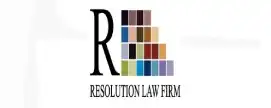

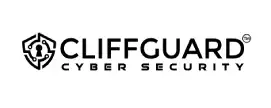
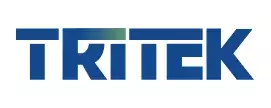

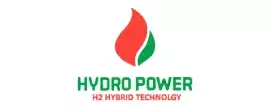



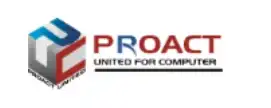



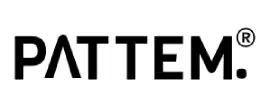

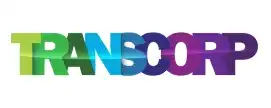
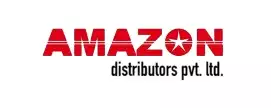
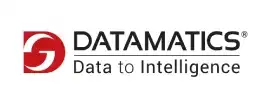











B2BCERT is a Solutions & Service organization, specialized in management consulting, Trainings, Assessments, Certification & Managed Services
MOST SEARCHED ON B2BCERT: ISO 9001 Certification | CE Certification | ISO 22000 Certification | NEMA Certification | ISO 27701 Certification | ISO 27032 Certification | ISO 22483 Certification | REACH Certification | ISO 22301 Certification | ISO 42001 Certification | ISO 41001 Certification | ISO 21001 Certification | ISO 15189 Certification | GMP Certification | GDPR Certification | GDP Certification | GLP Certification | HIPAA Certification | PCI DSS Certification | SOC 1 Certification | KOSHER Certification | NEMA Certification | Certificate of Conformity | GACP Certification | FSSC 22000 Certification | OHSAS 18001 Certification | HACCP Certification | SA 8000 Certification | SOC 2 Certification | VAPT Certification | ROHS Certification | BIFMA Certification | FCC Certification | HALAL Certification
ISO CERTIFICATIONS: ISO 9001 Certification | ISO 14001 Certification | ISO 45001 Certification | ISO 22000 Certification | ISO 27001 Certification | ISO 13485 Certification | ISO 17025 Certification | ISO 27701 Certification | ISO 20000-1 Certification | ISO 27032 Certification | ISO 22483 Certification | ISO 26000 Certification | ISO 22301 Certification | ISO 42001 Certification | ISO 27017 Certification | ISO 27018 Certification | ISO 50001 Certification | ISO 27014 Certification | ISO 29990 Certification | ISO 37001 Certification | ISO 41001 Certification | ISO 21001 Certification | ISO 55001 Certification | ISO 28000 Certification | ISO 22716 Certification | ISO 15189 Certification | ISO 41001 Certification
PRODUCT CERTIFICATIONS: FSSC 22000 Certification | OHSAS 18001 Certification | HACCP Certification | SA 8000 Certification | GMP Certification | GDPR Certification | GDP Certification | GLP Certification | HIPAA Certification | PCI DSS Certification | SOC 1 Certification | SOC 2 Certification | VAPT Certification | CE Certification | ROHS Certification | BIFMA Certification | FCC Certification | HALAL Certification | KOSHER Certification | NEMA Certification | REACH Certification | Certificate of Conformity | GHP Certification | Free Sale Certification | FDA Certification | GACP Certification
WHAT IS B2BCERT: B2BCERT is one of the leading service providers for International recognized standards and Management solutions for Business development, process Improvement, Consulting & Certification services for various International Standards like ISO 9001, ISO 14001, ISO 45001, ISO 22000, ISO 27001, ISO 20000, CE Marking, HACCP & many more. B2BCERT works on the values of trust, fairness & genuine respect for our customers, employees, and business partners.B2BCERT provides internationally recognized standards and management solutions, specializing in ISO and related certification services. Headquartered in Bangalore, India, we have a global presence in the Middle East and Africa. Our team of 30+ professionals ensures tailored solutions by partnering with leading certification firms.
B2BCERT Serves In: India | Nepal | Singapore | Afghanistan | Philippines | Malaysia | Jordan | Turkey | Sri Lanka | Saudi Arabia | Oman | UAE | Kuwait | Yemen | Qatar | Lebanon | Iran | Iraq | Bahrain | South Africa | Egypt | Nigeria | Kenya | Ghana | Tanzania | Zimbabwe | Cameroon | Uganda | USA | UK | Germany | Australia | New Zealand | Canada | Italy | Botswana | Brunei | Cambodia |
Service providing Sectors: Information Security | Manufacturing | Software Companies | Pharmaceuticals | Architecture | Construction | Food & Beverages | News & media | Science & Biotechnology | Electronics Industry | Telecommunications | Hospitals | Import & Export Businesses | Schools & Colleges | Textile Industries | Banks | Aerospace Manufacturing | Hotels & Restaurants | Organic Products | Mining & Renewable Business | Real Estate Business | Public Administration | Wholesale Trade | Supply Chain Management | Agrochemicals | Government Services | Electricity | Regulatory Agencies | Fitness and Wellness | Property Management | Rental Services | Warehousing | Delivery Services | Stores and Shops | IT Support | Event Planning | Consulting | Financial Advisory |
WHY B2BCERT: 1. Expertise Across Standards: B2BCERT is a leader in providing comprehensive solutions for a wide range of international standards, including ISO 9001, ISO 14001, ISO 45001, ISO 22000, ISO 27001, ISO 20000, CE Marking, and HACCP. Our deep knowledge ensures that your business meets and exceeds industry benchmarks with confidence. 2. Tailored Solutions: We understand that every organization is unique. B2BCERT offers customized consulting and certification services designed to fit your specific needs and objectives. Our team works closely with you to develop strategies that enhance your business processes and meet regulatory requirements.3. Global Presence: With headquarters in Bangalore, India, and a strong foothold in the Middle East and Africa, B2BCERT combines local expertise with a global perspective. Our international reach allows us to provide consistent, high-quality service wherever you operate.4. Trusted Partners: We collaborate with leading certification firms to offer you the best possible service. Our established relationships with top certification bodies ensure that you receive credible and widely recognized certifications that enhance your business’s reputation.5. Commitment to Values: At B2BCERT, our core values of trust, fairness, and respect drive everything we do. We are dedicated to building lasting relationships based on integrity and genuine respect for our clients, employees, and partners.6. Professional Team: Our team of over 30 skilled professionals brings a wealth of experience and dedication to every project. We are committed to delivering excellence and supporting you through every step of your certification journey.7. Comprehensive Support: From initial consultation to certification and beyond, B2BCERT provides end-to-end support. We are here to guide you through the complexities of compliance and help you achieve your business goals efficiently and effectively.